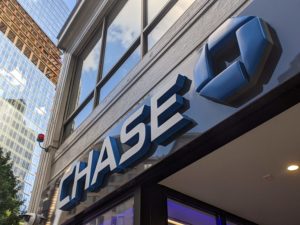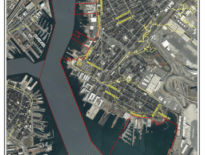While almost two-thirds of U.S. small and midsize businesses expect a recession this year, business leaders have an optimistic outlook for their own company’s performance in 2023, according to a survey from JPMorgan Chase.
Small business owners had the highest level of optimism, with 72 percent having a positive outlook for their company in 2023, according to the annual JPMorgan Chase Business Leaders Outlook released last week. Among midsize business leaders, 66 percent said they were optimistic about their company’s performance this year.
The survey included responses from about 1,800 business leaders at various U.S. businesses. It was conducted online from Nov. 14-22 for small businesses with annual revenues between $100,000 and $20 million and from Nov. 29 to Dec. 13 for middle market companies with annual revenues between $20 million and $500 million.
U.S. business leaders do have concerns about the economy, with 65 percent of midsize businesses and 61 percent of small businesses expecting a recession in the year ahead, JPMorgan Chase said in a statement.
More small businesses expect challenges with inflation this year compared to the previous year, with 45 percent of small businesses listing inflation as a top challenge for the year ahead, up from 20 percent one year ago. Nearly all midsize businesses (91 percent) have inflation challenges, JPMorgan said.
Some impacts businesses have seen from inflation include passing costs onto consumers, with 83 percent of midsize businesses increasing at least some costs for consumers and buyers, and 68 percent of small businesses raising prices on some or all products and services.
Almost all small businesses (94 percent) have seen expenses increase, with 38 percent seeing increases of 11 percent or more. Some of the costs driving increases for both small and midsize businesses include employee wages and benefits, as well as shipping and other supply chain-related expenditures.
Business leaders expect higher costs to remain long-term. The survey found that 82 percent of midsize businesses are likely to continue to increase prices to mitigate costs, while the majority of small businesses expect that higher costs for labor, rents, shipping and materials are permanent.
“Inflation has been a challenging headwind impacting businesses of all sizes, across all industries,” Ginger Chambless, head of research at JPMorgan Chase commercial banking, said in the statement. “While we have seen some encouraging signs that inflation has started to moderate and should cool over 2023, businesses may still want to consider adjustments to strategies, pricing or product mixes to help weather the storm in the near-term.”
The study did find that 69 percent of small businesses expect higher revenue and sales in 2023, while 65 percent anticipate greater profits. Midsize businesses also have optimistic expectations for performance, with 63 percent expecting increased revenue and sales in 2023, and 51 percent predicting greater profits.
“Following the challenges of the last few years, it’s encouraging to see the resilience of small business owners and leaders,” Ben Walter, CEO of Chase business banking, said in the statement. “The next economic cycle is always right around the corner, so our role is to help small business owners plan ahead so they can succeed in good times and bad.”
The JPMorgan Chase survey comes as confidence among Massachusetts businesses ended 2022 on a down note, with the chief concern among employers shifting from rising prices to slowing economic growth and the threat of a long-discussed recession.
Associated Industries of Massachusetts reported Monday that its business confidence index shed 4.7 points in December to finish the year at 54 on its 0-100 scale, with readings above 50 considered positive territory.
The index ended the year 2.7 points lower than its level of December 2021, and AIM cited worries that central bank efforts to tame inflation by boosting interest rates will tip the economy into a recession.
“The path to 2 percent inflation will inevitably be painful,” Sara Johnson, AIM Board of Economic Advisors chair, said in a statement. “Most economists forecast a recession in the first half of 2023, led by declines in residential investment, commercial construction, inventory investment, and consumer spending on goods.”
Economists are expected to weigh in this month at a hearing that lawmakers and the Healey administration are planning in order to get a sense of how much tax revenue state budget writers might responsibly pencil into the annual budget proposals that will be drafted and debated ahead of fiscal 2024, which begins July 1.
State House News Service staff writer Michael P. Norton contributed to this report.







